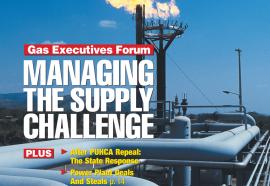AMI/Demand Response: Getting It Right the First Time
Each DR portfolio will have a different set of AMI needs, based on overall technology infrastructure.
Advanced metering infrastructure (AMI) evaluations will benefit greatly from creating an appropriate DR portfolio as part of the overall solution.
In the Energy Policy Act of 2005 (EPACT), Congress sent a strong message to electric utilities, consumers, and industry regulators that they need to get serious about advanced metering, time-based rates, and demand response (DR).
To underline this point, EPACT states:









